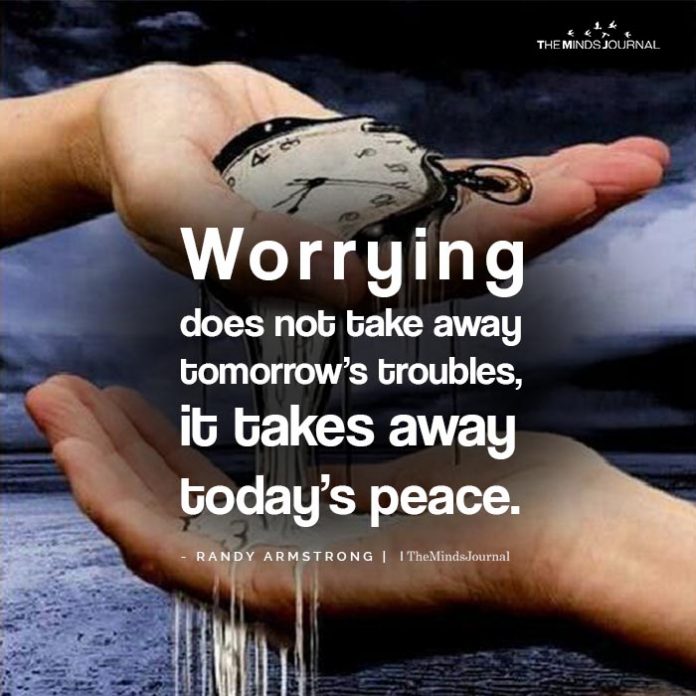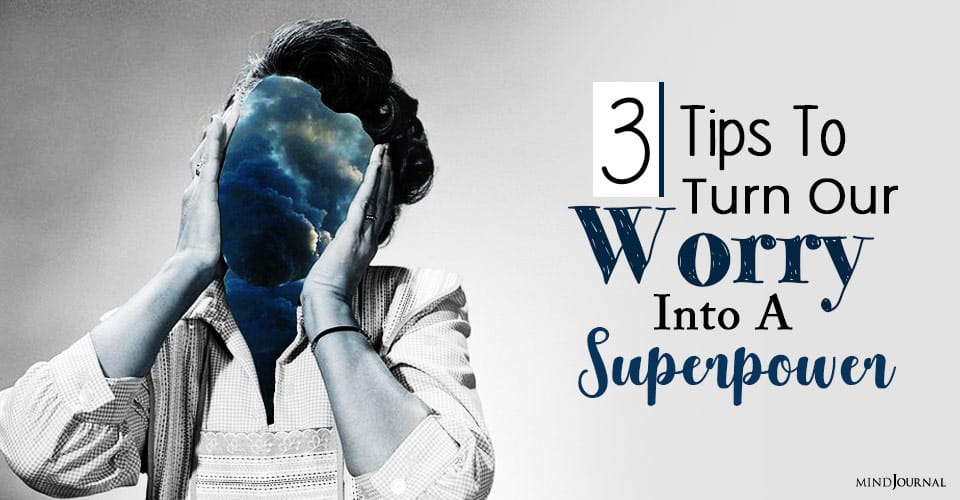Are you feeling anxious? Do you think you can’t reach out to anyone for help? This blog covers everything you should know about turning your worry into a superpower.
Many of us have been on the receiving end of that encouraging feedback, which is a splendid combination of insulting and useless. Calm down? Thanks, we hadn’t thought of that. Considering that anxiety can be painful at times, chances are if we could simply “calm down” we probably would have done so already. Now we have two problems — we are intensely anxious and we realize we have a not-so-helpful friend.
As it turns out, imploring us to calm down is not only unhelpful but also exactly the wrong advice.
Telling Us To Calm Down Does Several Counterproductive Things.
First, it is incredibly invalidating and does not in any way recognize that there might be something that we are worrying about for good reason. It, therefore, does not give credibility to the fact that anxiety is designed specifically to warn us of impending danger.
So, whereas feeling heard and understood might actually soothe and reassure us, being told to “calm down” will cause us to try and suppress and avoid our feelings, making our anxiety and worry worse, not better.
Second, it follows that failing to identify the problem that is causing our anxiety will limit our opportunity to identify any effective strategies to address the problem. Suppose our inability to calm down is from an imminent threat that the other person cannot identify? As an example, from an evolutionary perspective, it would certainly not be adaptive to tell us to calm down as we see a hungry lion approach.
Also read Why Are We So Fearful Of Finding Our Purpose
And while the frequency of lion attacks in today’s day and age is perhaps less common, our anxiety and worry are usually based on a perceived threat that may feel and actually be very real to us. So, instead of helping us develop effective problem-solving strategies to deal with the cause of our anxiety, telling us to calm down offers no real strategies or solutions.

Next, when we are told simply to “calm down,” it avoids addressing our real problem, and creates another real problem – it damages rather than strengthens our social support network.
Specifically, because being told to calm down is such an invalidating and ineffective strategy, it tends to undermine our relationship with that person. Thus, it erodes our social support, which we need in difficult situations. One less person to count on means we are that much less likely to get the help we need when we need it, thus increasing our overall anxiety.
Also read 5 Signs Your Anxiety Hijacked Your Intuition (And How To Get It Back)
Finally, telling us to calm down is a more global condemnation of who we are and how we function.
It does not recognize that anxiety has many adaptive components. Our senses are heightened, we are energized to act, and our worry is the beginning of our minds working on the problems we perceive. Similarly, being told to globally calm down does not do justice to the fact that some people, in general, tend to be deeper, more active, and more intense thinkers. Those same people may also be creative, innovative and effective at making changes in their life.
In these cases, worry and anxiety is simply one expression of that more general activation. Thus, when we are told to calm down, it often feels like we are being told to shut our brains down in general, throwing out the good with the bad.
I have been thinking a lot about this issue since talking with Joe Mulherin, aka the musician nothing, nowhere. During our discussion, Mulherin explained how his active mind was useful for writing songs but often caused stress when he contemplated deeper existential questions. Based in part on that discussion, it became clear that rather than telling others to “calm down,” we must flip the script and actually embrace anxiety – and particularly our worry – as a superpower that will enhance our problem-solving ability.
So How Do We Turn Our Worry Into A Superpower?
First and foremost, we must accept the notion that anxiety is inherently an adaptive emotion.
It is designed to alert us to danger and give us the energy to manage the issue and find a solution. If we are anxious and worrying about something, there is a reason. There is something on the other end of that worry that we fear will be a negative outcome, or perhaps we fear the loss of a potentially positive outcome. We gain nothing by ignoring that worry. If anything, it will only make our worry worse.
We must listen to our body, mind and emotions and resolve to identify and solve the problem we face. To be sure, sometimes that problem is simply that we tend to be a bit more amped up in general, and need to manage our biology to soothe our racing mind. But often we are worrying about something specific in the world around us. Either way, it behooves us to listen to our anxiety and worry rather than dismiss it.
Related: 7 Warning Signs Of Depression That You Need To Know
Second, we must recognize that worry is only counterproductive if we feel shame about it, attempt to suppress it, and don’t use it as a force of “good” in our life.
Think about how powerful and focusing worry is. It is something that breaks through our concentration on other issues, and forces us to think solely about the topic of our worry. And we can worry for long periods of time as we struggle with our fears. Now, this can be unhelpful if we are worrying without focusing our attention on problem-solving. On the other hand, if we use the time that we would spend worrying on finding a solution, the energy behind the worry will give us strength and focus to address the issue we face.
Let’s take a situation that causes many people to feel anxious and worried — public speaking. When we have a public speaking engagement, we may start to feel anxious and worry that we will somehow be evaluated in a negative way. Perhaps we are concerned we won’t seem competent and knowledgeable, be interesting or funny, or otherwise compelling.
Worse, we may be afraid we’ll say something offensive. If we are told by a well-intentioned colleague or friend to calm down, or that we’ll do fine, we may listen to that feedback, we will suppress this internal debate. But if we listen to our anxiety and embrace our worry, a more productive process begins. We can not only identify the feared outcomes, but also the areas where we feel we may want to think through and practice our talk.
We may spend a couple of hours beforehand practising our talk in the mirror, or to other people. We may consider possible questions from the audience and how we would answer those questions. We may listen back to taped practices of our talk to hear how we sound. All of these problem-solving strategies will be motivated by worry and anxiety. But addressing our fear head-on will most likely produce a better and more effective talk.

Next, it is useful if we anticipate our worry and identify a specific process for dealing with worry through problem-solving.
Everyone may have a nuanced way of problem-solving. But generally speaking, there are four useful steps that people can undertake.
A) recognize that we are anxious,
B) determine why we are anxious,
C) identify possible problem solving and coping strategies, and
D) evaluate which strategies work best for us.
If we use our anxiety and worry as an opportunity to address real problems in our life, and hone our problem-solving skills, over time we will be able to more quickly translate our fear into an effective change in our life.
Related: How to Stop Being an Emotionally Repressed Person: Crying Therapy
And finally, we must seek out people who will nurture our superpower, rather than try to shut it down. We can find people who we feel are helpful and understanding of our anxiety and worry and develop a process by which they can help us through a difficult time. This will help us not be concerned that our anxiety and worry will be met with insistence that we calm down, but rather be heartened that our anxiety and worry will be the beginning of an effective, solutions-oriented strategy to our lives.
So, guess what? We don’t need to calm down.
We need to embrace our worry as our new superpower.
Are you ready to do it?

Written by: Michael Friedman, Ph.D Originally appeared on: Hardcorehumanism.com Republished with permission










Leave a Reply